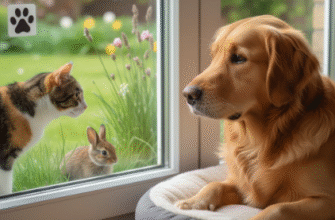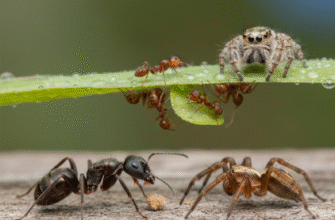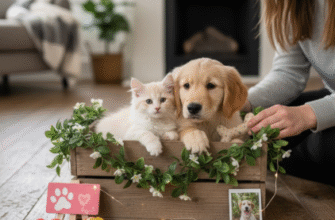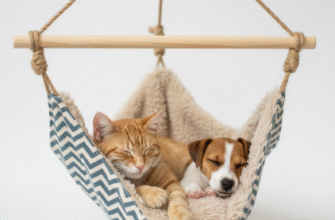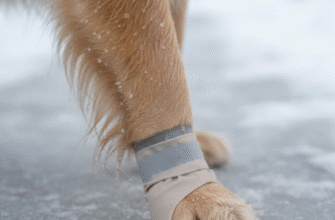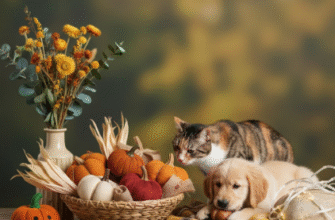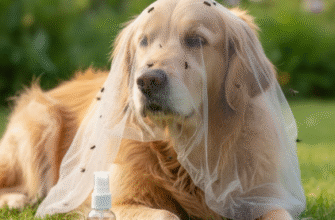The house feels impossibly quiet now. The click-clack of nails on the floor, the soft purr vibrating on your lap, the cheerful chirp greeting the morning sun – these familiar sounds are gone, leaving a silence that echoes with loss. Losing a pet is devastating. It’s not ‘just a dog’ or ‘just a cat’; it’s losing a member of your family, a constant companion, a source of unconditional love and joy. The grief that follows is real, profound, and deserves to be acknowledged and navigated with care.
Many people find themselves surprised by the intensity of their sorrow following a pet’s death. Society sometimes minimizes this type of loss, leading well-meaning but insensitive comments like “you can always get another one.” This can make grieving feel isolating. But the bond we share with our animal companions is unique and powerful. They are woven into the fabric of our daily lives, our routines, our quiet moments, and our celebrations. They offer comfort without words, loyalty without question, and an innocent presence that brightens our world. Losing that connection fundamentally changes our lives, and the pain is a testament to the depth of the love shared.
Understanding the Weight of the Loss
Why does it hurt so much? Our pets often represent simplicity and pure affection in a complicated world. They depend on us, and we, in turn, structure parts of our day around their needs – walks, feeding times, play sessions, quiet cuddles. When they pass, not only do we lose their companionship, but our routines are shattered. The simple act of walking into an empty house, not being greeted at the door, or reaching down to pet fur that isn’t there can trigger fresh waves of grief.
Furthermore, pets are often our confidantes. We talk to them, share our secrets, and feel their non-judgmental presence beside us through ups and downs. They witness our lives unfold. For some, especially those living alone or facing other life challenges, a pet might be their primary source of companionship and emotional support. The loss, therefore, can feel like losing a vital lifeline.
It’s also common to experience feelings of guilt. Did I do enough? Did I make the right decision regarding euthanasia? Could I have prevented an accident? These ‘what ifs’ can be torturous. Remember that you made decisions based on love and the information you had at the time, likely guided by veterinary advice. Focusing on the years of love and care you provided is more constructive, though allowing yourself to process the guilt, rather than suppress it, is also part of healing.
Navigating the Waves of Grief
Grief isn’t a neat, linear process with defined stages you tick off a list. It’s more like waves – sometimes calm, sometimes overwhelming, often unpredictable. You might feel fine one moment and utterly heartbroken the next, triggered by a memory, a sound, or seeing another person with their pet. Common emotions include:
- Sadness and Crying: Deep sorrow, emptiness, and frequent tears are entirely normal.
- Anger: You might feel angry at the illness, the accident, the vet, or even the pet for leaving you.
- Guilt: Questioning your decisions or actions leading up to the loss.
- Denial: Finding it hard to believe your pet is truly gone, perhaps expecting them to appear.
- Loneliness: Feeling the absence of their presence acutely, especially during times you usually spent together.
- Relief: If your pet was suffering from a long illness, you might feel a sense of relief that their pain is over, sometimes followed by guilt over feeling relieved. This too is normal.
Allow yourself to experience these emotions without judgment. Trying to be ‘strong’ or suppress your feelings often hinders the healing process. Grief needs an outlet.
Strategies for Coping and Healing
While nothing can erase the pain instantly, there are ways to navigate this difficult time and begin to heal. It’s about finding healthy ways to process your grief and honour your pet’s memory.
Acknowledge Your Pain
The first and most crucial step is validating your own feelings. Your grief is real and significant. Don’t let anyone diminish your loss. Say it out loud if you need to: “I am heartbroken because I loved my pet deeply, and I miss them terribly.” Giving yourself permission to mourn is essential.
Talk About It
Share your feelings with people who understand. This might be a compassionate friend, a family member who also loved the pet, or someone else who has experienced a similar loss. Talking about your pet, sharing funny stories or cherished memories, can be incredibly therapeutic. If you don’t have a supportive network, consider online forums or social media groups dedicated to pet loss where you can connect with others who truly get it.
Important Note: Be mindful of who you share your deepest grief with. While many people mean well, not everyone understands the depth of the human-animal bond. Protect your heart by confiding in those who offer genuine empathy and validation, rather than judgment or minimization of your pain.
Create Memorials and Rituals
Honouring your pet’s memory can be a comforting way to process grief. This doesn’t have to be elaborate. Consider:
- Creating a photo album or scrapbook.
- Making a shadow box with their collar, favourite toy, and photos.
- Planting a tree or flowers in their memory.
- Writing a letter to your pet, expressing your feelings.
- Lighting a candle each evening for a time.
- Making a donation to an animal rescue organization in their name.
These acts provide a focus for your grief and celebrate the life you shared.
Maintain Routines (or Adapt Them Gently)
The disruption to your daily schedule can be jarring. While some routines will necessarily change, try to maintain others, like regular meal times and sleep schedules. If walks were a big part of your day, still try to get outside for fresh air, even if it feels painful at first. You might need to adjust the route or time. Structure can provide a sense of normalcy during a chaotic emotional time.
Take Care of Yourself
Grief is physically and emotionally exhausting. It’s easy to neglect your own needs when you’re hurting. Make an effort to eat nutritious meals (even if you don’t feel hungry), stay hydrated, and get adequate rest. Gentle exercise, like walking or stretching, can also help release tension and boost mood slightly. Be patient and kind to yourself, just as you would be to a grieving friend.
Dealing with Other Pets
If you have other pets, they may also be grieving. Animals can sense loss and may show changes in behaviour, such as searching for their companion, changes in appetite, or becoming more clingy or withdrawn. Maintain their routines as much as possible and offer them extra comfort and attention. Their grief, while different from ours, is also valid.
The Question of Getting Another Pet
There’s no ‘right’ time to consider bringing another animal into your life. Some people find comfort relatively soon, while others need months or years. Rushing into getting a new pet to fill the void often isn’t fair to you or the new animal, as they cannot replace the one you lost. Wait until you feel ready to love a new individual for who they are, not as a substitute. When the time feels right, opening your heart and home again can be a beautiful tribute to the love you shared with your departed companion.
Finding Further Support
Sometimes, grief can feel overwhelming, and coping on your own is too difficult. Don’t hesitate to seek additional support. Many veterinary clinics can offer resources or point you towards help. Look for:
- Pet Loss Support Hotlines: Staffed by trained volunteers or professionals who understand pet loss.
- Online Forums and Groups: Connecting with others who have shared experiences can reduce feelings of isolation.
- Books and Articles: Reading about pet loss and grief can help normalize your experience.
While general grief counsellors can help, finding someone who specifically understands or specializes in pet loss can sometimes be particularly beneficial if you feel your grief isn’t being fully understood in other contexts.
Verified Understanding: Research increasingly acknowledges the significance of the human-animal bond. The grief experienced after losing a pet is recognized by many mental health professionals as a valid and potentially profound form of bereavement. You are not overly sensitive or irrational for feeling deeply saddened by your loss.
Healing from the loss of a beloved pet takes time. There will be good days and bad days. Be patient with yourself through the process. The intense pain will soften eventually, replaced by cherished memories and the enduring warmth of the love you shared. That love never truly leaves; it becomes a part of who you are. Remember the joy, the companionship, and the special bond – that is the lasting legacy of your dear friend.

